Ukraine rejects peace plan proposed by Trump's advisers, NATO has a new Secretary General, crisis in Kenya, tension on the Korean Peninsula, WikiLeaks founder officially pleads guilty... are some of the outstanding international events of the day.
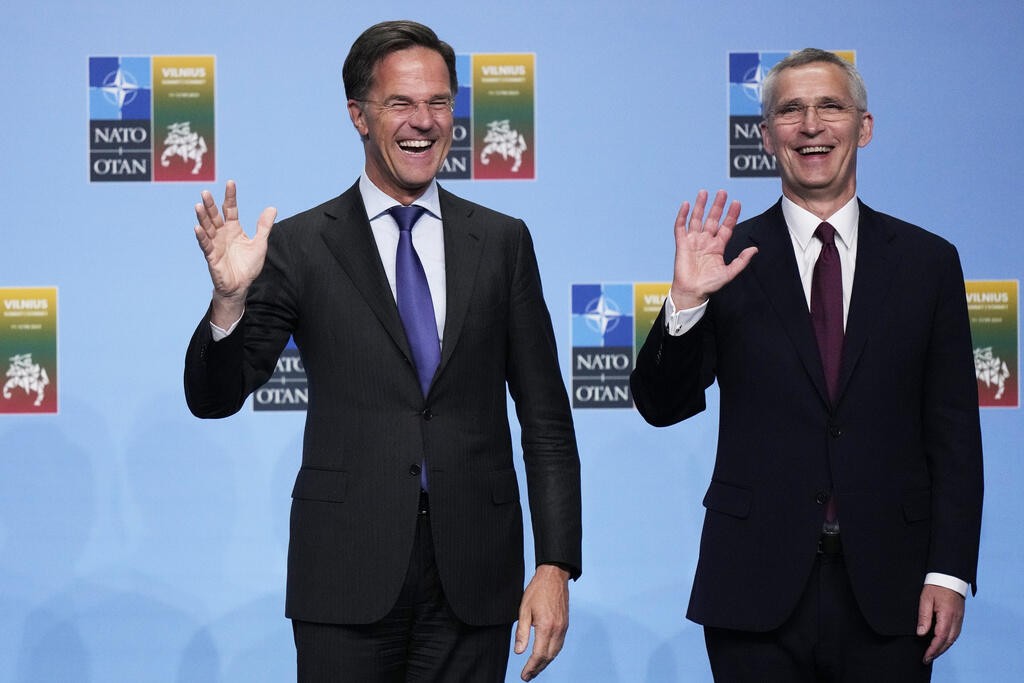 |
| Current NATO Secretary General Jens Stoltenberg (left) and his successor Mark Rutte. (Source: AP) |
Europe
* Ukraine rejects plan proposed by Donald Trump's adviser: Ukrainian President Volodymyr Zelensky's adviser Mikhail Podolyak said Kiev did not agree with the conflict resolution plan proposed by former US President Donald Trump's advisers.
Mr. Podolyak said that a ceasefire based on the current border line was "strange", and affirmed that Kiev was only promoting President Zelensky's "peace formula".
Previously, on June 25, two key advisors submitted a peace plan for Ukraine in case Mr. Trump is elected President of the United States. Accordingly, the US will stop supporting Ukraine if Kiev refuses to negotiate with Moscow, and vice versa, it will increase support for Ukraine if Russia refuses to negotiate.
Russia could be persuaded to come to the negotiating table if it was assured that Ukraine would soon abandon its bid to join the North Atlantic Treaty Organization (NATO), advisers say.
In addition, Trump's advisers also suggested that the Russia-Ukraine peace treaty should maintain a ceasefire regime based on the current border line. (Reuters)
* NATO officially has a new Secretary General: On June 26, NATO member countries elected Dutch Prime Minister Mark Rutte as the organization's next Secretary General, replacing Mr. Jens Stoltenberg whose term will end next October.
Mr. Rutte, 57 years old, has led the European Union's (EU) fifth largest economy for the past 14 years, receiving support from important NATO members such as the US, UK, France, Germany and Turkey.
He is highly regarded for his flexible stance in seeking consensus and his pro-Ukraine stance. His upcoming term is not expected to be easy.
The head of NATO will have to deal with the Russia-Ukraine conflict and the possibility that Donald Trump will return to the White House after the US presidential election in November could influence NATO's decisions. (Reuters)
* Russia will restore a passenger train route to North Korea in July, after a four-year hiatus due to the Covid-19 pandemic.
The ships will sail from the city of Vladivostok to the North Korean port of Rason, according to Oleg Kozhemyako, head of the Primorsky Krai region in Russia's Far East, which borders North Korea. (Interfax)
* Italy plans to restore nuclear energy by 2030, the new energy and climate plan (PNIEC) will include 10-11% nuclear energy, according to Italian Minister of Security, Environment and Energy Gilberto Pichetto Fratin.
The Italian government is finalizing the plan and will submit it to the European Union (EU) by the end of June.
Italy is looking to boost energy security following tensions in Ukraine and is eyeing the potential for cleaner nuclear technology. (ANSA)
* BRICS has temporarily suspended the admission of new members, according to Russian Foreign Minister Sergei Lavrov during a meeting with Belarusian Senate Speaker Natalya Kochanova.
The BRICS group of emerging economies is also preparing to rank its partner countries before they become full members of the bloc.
BRICS, which originally included Russia, Brazil, India, China and South Africa, has now added Egypt, Ethiopia, Iran, the United Arab Emirates (UAE) and Saudi Arabia. (TASS)
* Ukraine and Russia have exchanged 180 prisoners of war , the largest in nearly five months, under the mediation of the UAE. Each side received 90. (Sky News)
| RELATED NEWS | |
 | Russia-Ukraine have had a big exchange for nearly half a year, what does Kiev say about Trump's peace plan? |
Asia-Pacific
* North Korea launched a ballistic missile on the morning of June 26 into the East Sea. The South Korean military is conducting research.
The Japanese coast guard said the launch appeared to have failed and the North Korean object landed outside Japan's exclusive economic zone, about 370 km (230 miles) off the country's coast, without causing any damage.
The United States, South Korea and Japan have voiced their opposition to the incident. (Yonhap)
* South Korea resumed large-scale live-fire drills on border islands with North Korea on June 26, the first in seven years.
The drill, which involved various types of artillery, took place in the Yeonpyeong and Baengnyeong islands areas in the Yellow Sea, just south of the Northern Limit Line (NLL).
The Marine Corps fired more than 290 artillery shells into offshore waters, including K9 guns, Chunmoo multiple rocket launchers and Spike anti-tank missiles. (Yonhap)
* South Korea is not considering acquiring nuclear weapons at this time because the United States has agreed to use them to defend its ally, according to South Korean Prime Minister Han Duck-soo on June 26.
Speaking to reporters at the government building, Prime Minister Han Duck-soo stated that Seoul and Washington are in the process of implementing the Washington Declaration adopted by President Yoon Suk Yeol and his US counterpart Joe Biden last year.
Seoul should now focus on fully implementing the agreement reached between South Korea and the United States, he said, adding that the "better option" would be to defend the country without using nuclear weapons because doing so would weaken the basis for persuading Pyongyang to abandon its nuclear weapons program.
Prime Minister Han stressed that he does not think that possessing nuclear weapons on its own is the only way, and that South Korea needs to continue building its deterrence capabilities through cooperation with allies or the international community. (Yonhap)
* India and China highlighted their “shared interests” of “stability and progress” despite border tensions, Indian Foreign Minister S Jaishankar said during a meeting with Chinese Ambassador to New Delhi Xu Feihong.
After meeting Foreign Minister Jaishankar, Ambassador Xu Feihong said he looked forward to working with India to push the development of Beijing-New Delhi relations in the “right direction.” (Times of India)
* India has an opposition leader in the House of Representatives after 10 years: On June 25, Indian Prime Minister Narendra Modi's main rival in the recent general election, Mr. Rahul Gandhi of the Congress Party, was elected as the opposition leader in the 18th House of Representatives - an important position that had been vacant for a decade.
This decision is significant because in the past two lower house terms, the once-powerful Congress party of the Gandhi family has failed to secure the necessary number of seats (more than 55 seats) in the legislature to allow him to assume this position. (Times of India)
* Australia-Solomon discussed security and development cooperation during a meeting between Solomon Islands Prime Minister Jeremiah Manele and his Australian counterpart Anthony Albanese in Canberra.
Speaking at a joint press conference after the talks, Mr Albanese said Australia and Pacific nations were well placed to meet the region's security needs, stressing: "We see security as a Pacific family business."
For his part, Prime Minister Manele affirmed: "We acknowledge that our security partners, China and Australia, also have strategic security interests... For our part, we look at security through a development perspective." (SBS News)
| RELATED NEWS | |
 | North Korea launches missile: South Korean Presidential Office convenes emergency meeting, US-Japan-Korea react |
Middle East-Africa
* Risk of escalating crisis in Gaza and the West Bank: In a recent meeting of the United Nations Security Council (UNSC), UN Special Coordinator for the Middle East Peace Process Tor Wennesland warned of a deepening crisis in Gaza and the West Bank.
Describing the “catastrophic and horrifying” humanitarian crisis in Gaza, where civilians are suffering the effects of hostilities and civil order has almost completely broken down, Mr. Wennesland reiterated the UN Secretary-General’s warning that further escalation “will only add to the suffering and have dire consequences for the region.”
"All perpetrators of violence must be held accountable and swiftly brought to justice," the UN official stressed.
Mr. Wennesland also expressed deep concern about the risk of military escalation between Israel and Hezbollah along the Green Line, the boundary separating the Lebanese and Israeli armed forces. (THX)
* The US is seeking to stop the Israel-Hezbollah conflict through diplomacy and is urgently working towards a diplomatic agreement that would allow civilians living on the border of the two Middle Eastern countries to return to their homes.
"Diplomacy is by far the best way to prevent further escalation," US Defense Secretary Lloyd Austin said. (Reuters)
* Russia supports the demand for the withdrawal of foreign troops from Syria, the end of violations of the country's sovereignty, as well as the frequent attacks by the Israeli air force, in order to achieve sustainable unity in Syria, according to Russia's Permanent Representative to the UN Vasily Nebenzya.
According to Mr. Nebenzya, the situation in the Middle East is very chaotic as military activities in the region related to the Israel-Palestine conflict are still ongoing and there is a high risk that neighboring countries will get involved in this conflict. Meanwhile, concerns about the humanitarian situation in Syria are increasing.
In addition, in areas that the Syrian government does not control, such as the terrorist hotspot of Idlib, the area across the Euphrates River and areas where Turkey is conducting military operations, tensions remain high. (TASS)
* The crisis in Kenya caused by protests against tax increases , which broke out on June 18, has now turned into bloody violence, forcing the African country to mobilize its military to intervene.
On June 25, the UN Secretary-General expressed "deep concern" over the bloody violence that has rocked Kenya, leaving hundreds of people dead and injured.
On the same day, Chairman of the African Union (AU) Commission Moussa Faki Mahamat also expressed "deep concern" after the above-mentioned protests in Kenya became serious, and urged the country to "remain calm and refrain from violence". (AFP)
| RELATED NEWS | |
 | Kenya Crisis: Protests Turn Into Bloody Clashes, Situation Gets Out of Control, Military Steps In |
America
* The US sanctions nearly 50 entities and individuals accused of “laundering” billions of dollars for the Iranian military.
The sanctioned entities and individuals formed a “shadow banking network” used by Iran’s Ministry of Defense and Armed Forces Logistics (MODAFL) and the Islamic Revolutionary Guard Corps (IRGC), the US Treasury said in a statement.
The network has helped MODAFL and the IRGC gain access to the international financial system and process billions of dollars since 2020. (Reuters)
* WikiLeaks founder Julian Assange officially pleaded guilty in a court hearing on June 26 on Saipan Island, the main island of the Northern Mariana Islands - a US territory in the Pacific Ocean.
US District Court Judge Ramona V. Manglona has accepted Julian Assange's guilty plea and released the WikiLeaks founder after he completed his prison term after being detained in the UK since 2019.
After the three-hour trial ended, Julian Assange left Saipan on a private plane accompanied by the Australian Ambassadors to the United States and Britain and returned to his home country of Australia. (Reuters)
* Russian and US Defense Ministers hold phone talks: On June 25, Russian Defense Minister Andrei Belousov and his US counterpart Lloyd Austin held a phone conversation initiated by Washington to discuss the situation surrounding Ukraine.
Mr. Belousov stressed the risk of further escalation due to the US continuing to supply weapons to the Ukrainian armed forces. The sides also discussed other issues. (TAS)
* The UN is deploying four experts to monitor the Venezuelan presidential election, scheduled for July 28, at the invitation of the Caribbean country's Electoral Council.
However, the “independent and internal” report on the progress of the election process will be “confidential.” The panel of election experts will present the report to UN Secretary-General Antonio Guterres and will not make any public statements. (UN News)
* Interpol has a new Secretary General from Brazil: On June 25, the International Criminal Police Organization (Interpol) elected Mr. Valdecy Urquiza - head of the international cooperation agency of the Brazilian Federal Police - as Secretary General for the next 5 years.
This is the first time in history that a police officer from a developing country has become an executive officer of Interpol. In its 100 years of operation, the organization has been run by officials from five Western countries, including the United States and four European countries. (Reuters)
Source: https://baoquocte.vn/tin-the-gioi-266-ukraine-cu-tuyet-ke-hoach-hoa-binh-cua-phe-ong-trump-nato-co-tong-thu-ky-moi-ban-dao-trieu-tien-cang-thang-276427.html



![[Photo] President Luong Cuong presents the 40-year Party membership badge to Chief of the Office of the President Le Khanh Hai](https://vphoto.vietnam.vn/thumb/1200x675/vietnam/resource/IMAGE/2025/5/19/a22bc55dd7bf4a2ab7e3958d32282c15)
![[Photo] Panorama of the Opening Ceremony of the 43rd Nhan Dan Newspaper National Table Tennis Championship](https://vphoto.vietnam.vn/thumb/1200x675/vietnam/resource/IMAGE/2025/5/19/5e22950340b941309280448198bcf1d9)

![[Photo] Close-up of Tang Long Bridge, Thu Duc City after repairing rutting](https://vphoto.vietnam.vn/thumb/1200x675/vietnam/resource/IMAGE/2025/5/19/086736d9d11f43198f5bd8d78df9bd41)
![[Photo] General Secretary To Lam attends the conference to review 10 years of implementing Directive No. 05 of the Politburo and evaluate the results of implementing Regulation No. 09 of the Central Public Security Party Committee.](https://vphoto.vietnam.vn/thumb/1200x675/vietnam/resource/IMAGE/2025/5/19/2f44458c655a4403acd7929dbbfa5039)


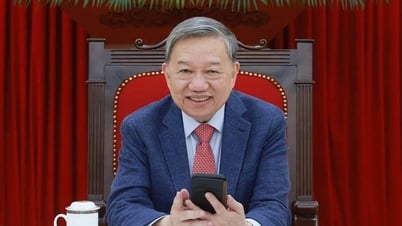

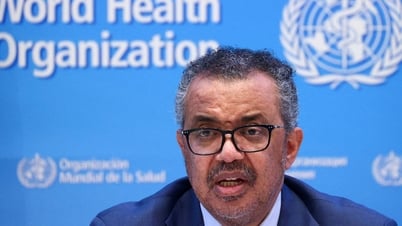

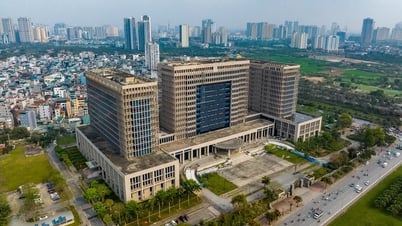





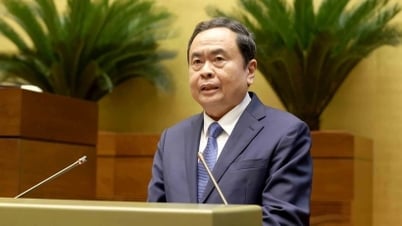
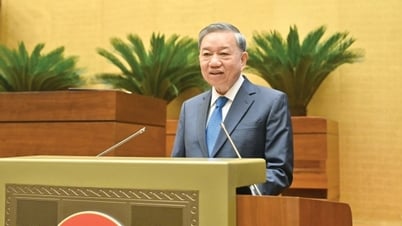
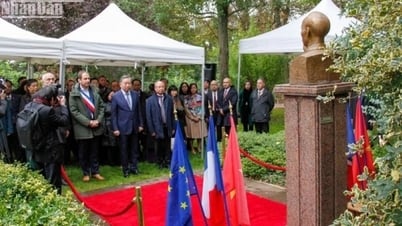
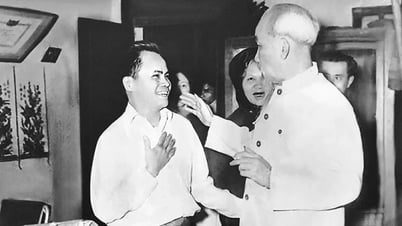





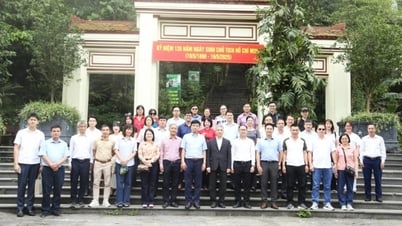
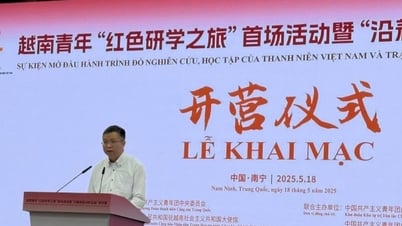
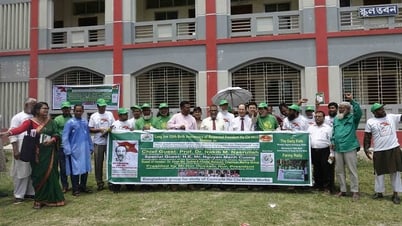



![[Photo] Prime Minister Pham Minh Chinh inspects the progress of the National Exhibition and Fair Center project](https://vphoto.vietnam.vn/thumb/1200x675/vietnam/resource/IMAGE/2025/5/19/35189ac8807140d897ad2b7d2583fbae)


















































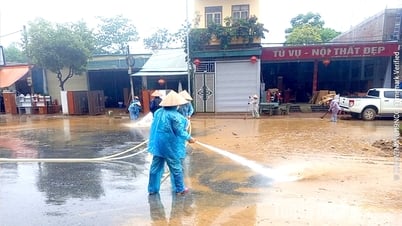







![[VIDEO] - Enhancing the value of Quang Nam OCOP products through trade connections](https://vphoto.vietnam.vn/thumb/402x226/vietnam/resource/IMAGE/2025/5/17/5be5b5fff1f14914986fad159097a677)



Comment (0)